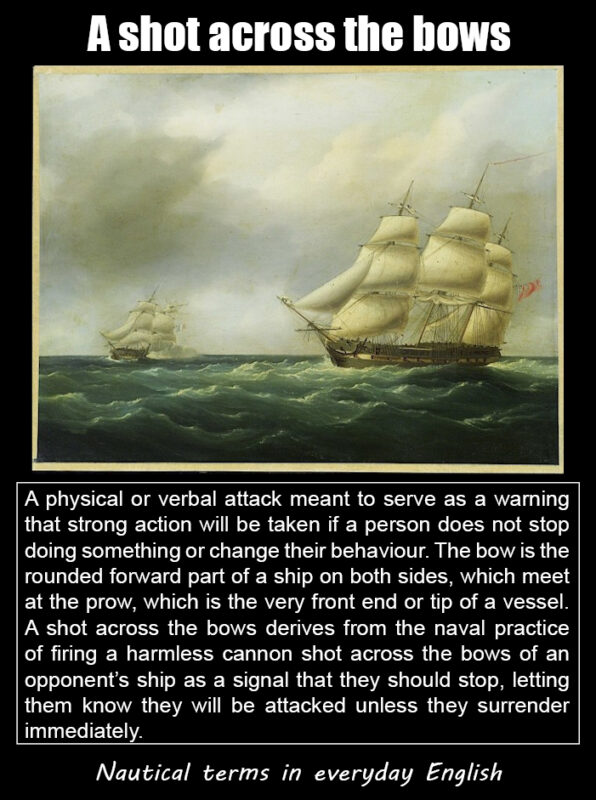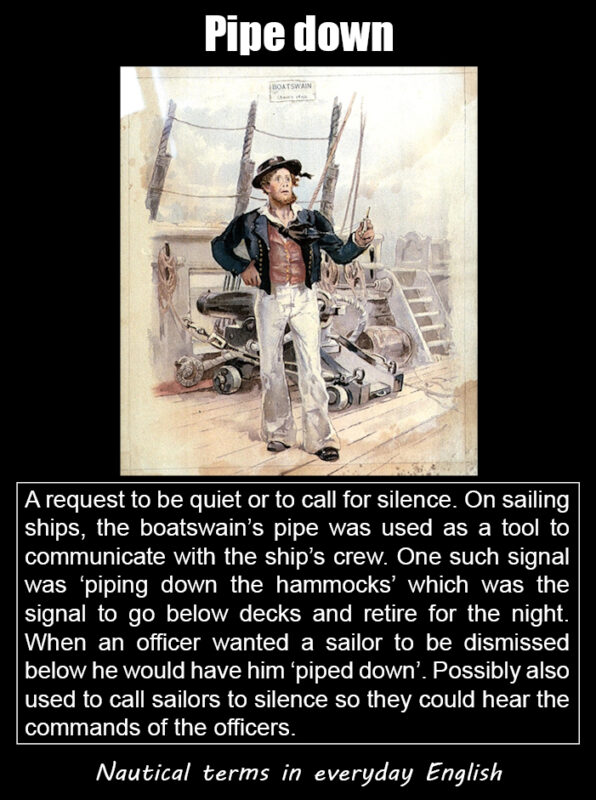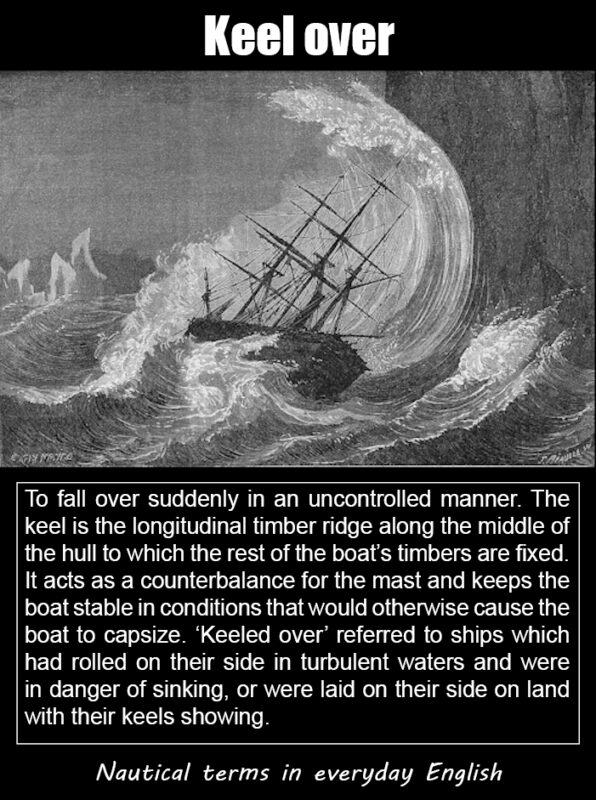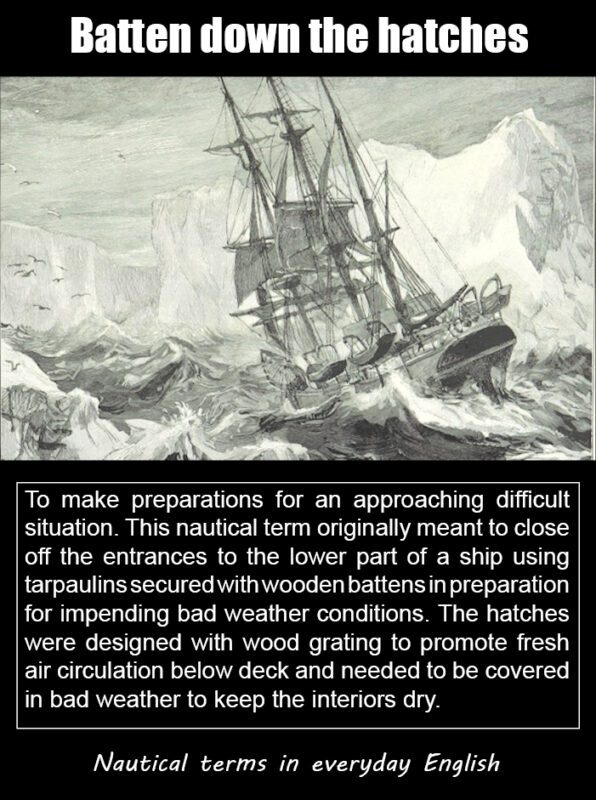

A request to be quiet or call for silence. On sailing the boatswain’s pipe was used as a tool to communicate with the ship’s crew. One such signal was ‘piping down the hammocks’ which was the signal to go below decks and retire for the night. When an officer wanted a sailor to be dismissed below he would have him ‘piped down’. Possibly also used to call sailors to silence so they could hear the commands of the officers.

To fall over suddenly in an uncontrolled manner. The keel is the longitudinal timber ridge along the middle of the hull to which the rest of the boat’s timbers are fixed. It acts as a counterbalance for the mast and keeps the boat stable in conditions that would otherwise cause the boat to capsize. ‘Keeled over’ referred to ships which had rolled on their side in turbulent waters and were in danger of sinking, or were laid on their side on land with their keels showing.

To make preparations for an approaching difficult situation. This nautical term originally meant to close off the entrances to the lower part of a ship using tarpaulins secured with wooden battens in preparation for impending bad weather conditions. The hatches were designed with wood grating to promote fresh air circulation below deck and needed to be covered in bad weather to keep the interiors dry.

This phrase is used to describe someone who is unstable, unpredictable, or uncontrollable. This term has its roots in Naval warfare in the Age of Sail. Due to their weight the cannons on a sailing ship, which were generally referred to as guns, were secured to prevent them from moving about with the waves of the sea or to prevent damage from the enormous recoil when fired. A cannon that had become loose of its restraints and was rolling dangerously about the deck could cause immense damage to the vessel and crew.